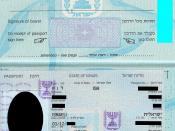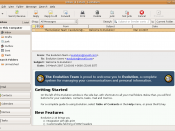Identity Theft
The Invisible Crime
According to the Federal Trade Commission, The 1990's spawned a new variety of crooks called identity thieves. Their stock in trade? Your everyday transactions, which usually reveal bits of your personal information: your bank and credit card account numbers; your income; your Social Security number (SSN); or your name, address, and phone numbers. An identity thief obtains some piece of your sensitive information and uses it without your knowledge to commit fraud or theft. (http://www.ftc.gov/).
Victims of identity theft usually do not even know that they have been targeted until it is to late. Identity theft can take years and a lot of money to clear up, and until it is credit is ruined and lives are destroyed. As with other crimes we cannot completely control if we are victims, but we can be aware how criminals obtain our private information, how to reduce the risk of being a victim and some helpful information on what to do after the crime is committed.
How Does Our Private Information Fall Into The Wrong Hands
Thieves get personal information in a variety different ways. (http://www.ftc.gov/). The FTC (Oct., 2003) stated: "Thieves use a variety of methods to gain access to your personal information such as:
÷Stealing records from their employer,
÷Bribing an employee who has access to these records, or Hacking into the organization's computers.
÷Rummage through your trash
÷Obtain credit reports by abusing their employer's authorized access to credit reports or by posing as a landlord, employer, or someone else who may have legal right to the information.
÷Steal credit and debit card numbers as your card is processed, using a special device known as skimming
÷Stealing wallets and purses
÷Steal mail like pre approved credit offers, new checks, tax information, and bank statements
÷They can...


